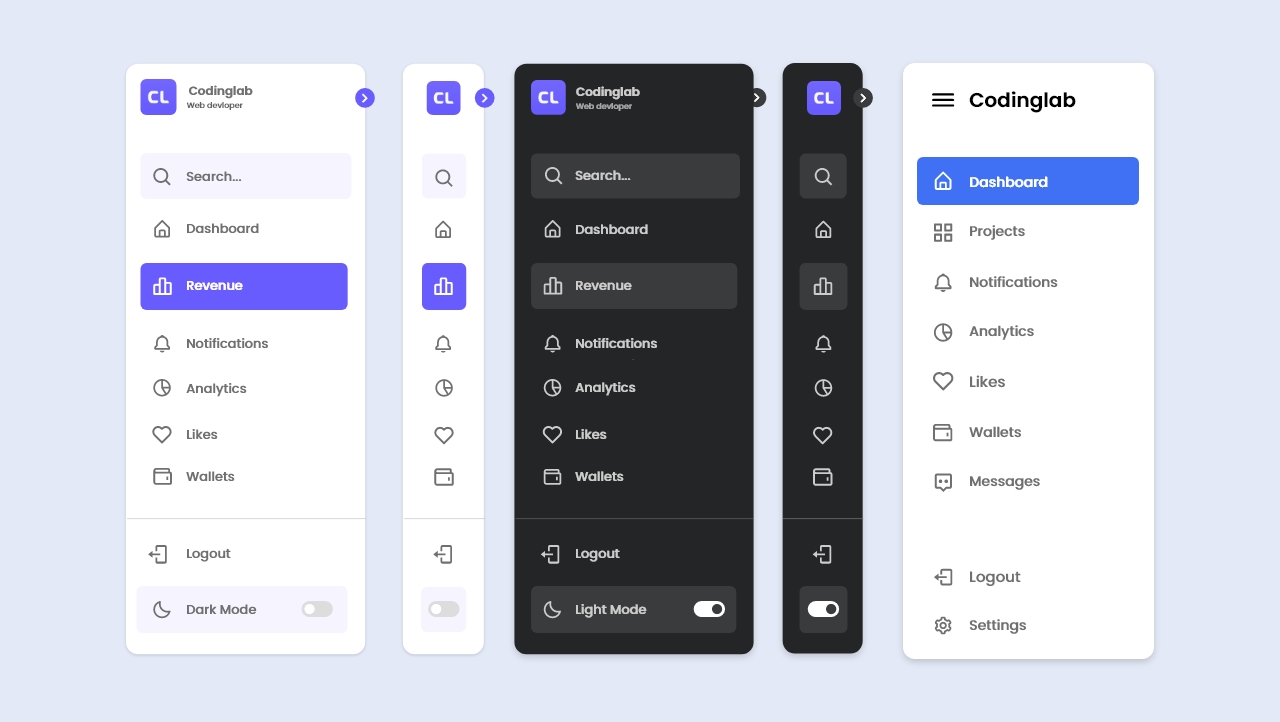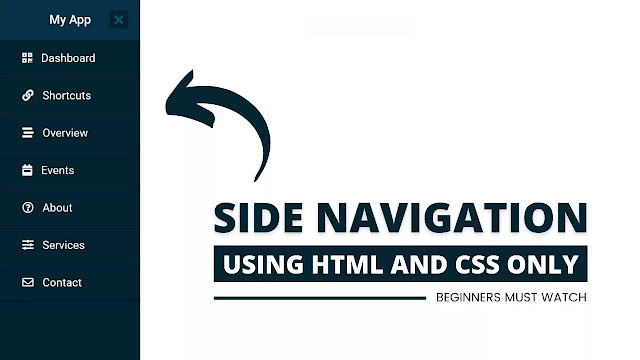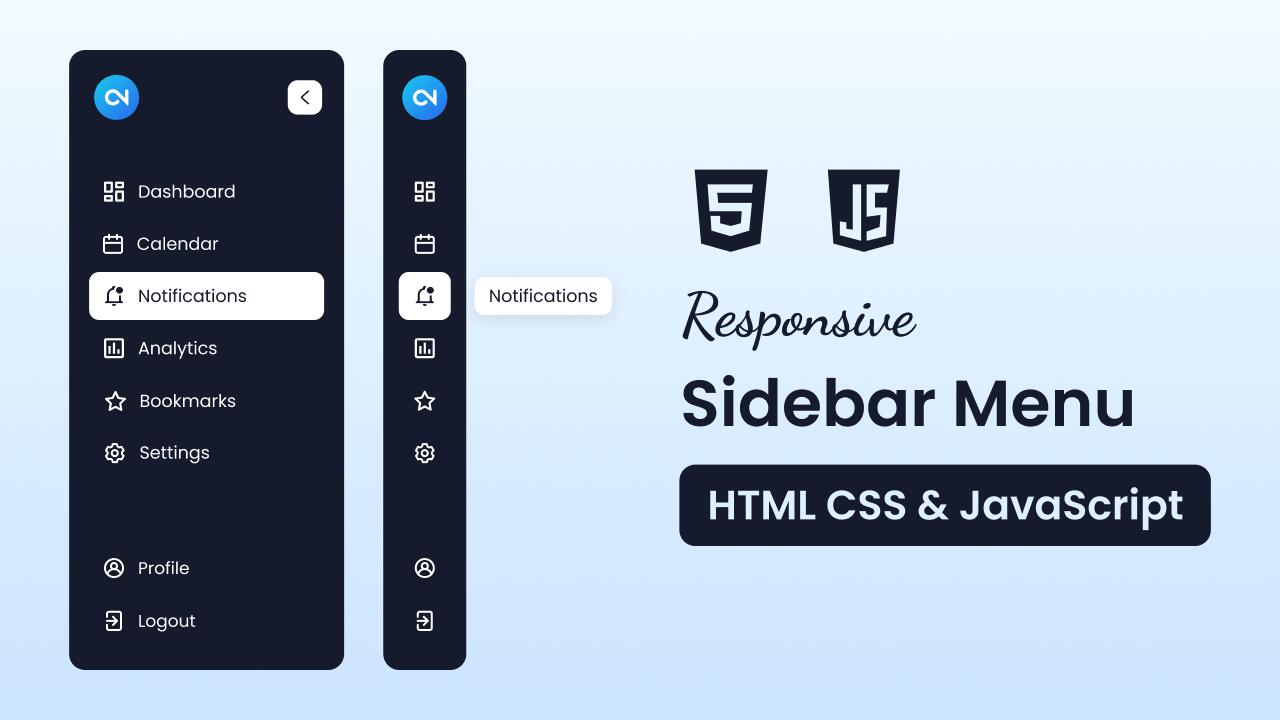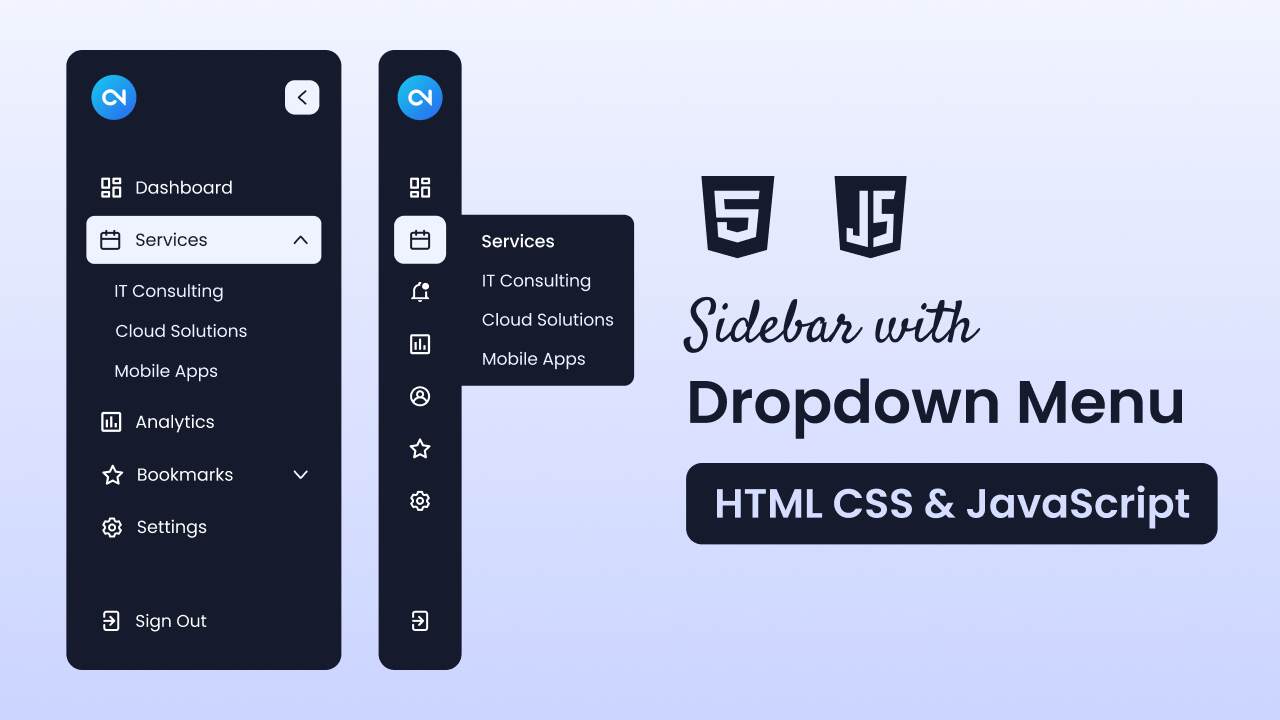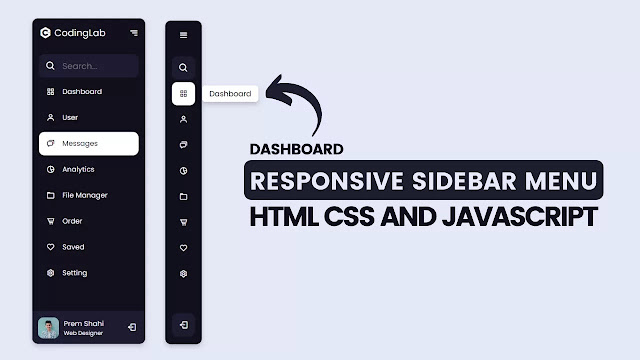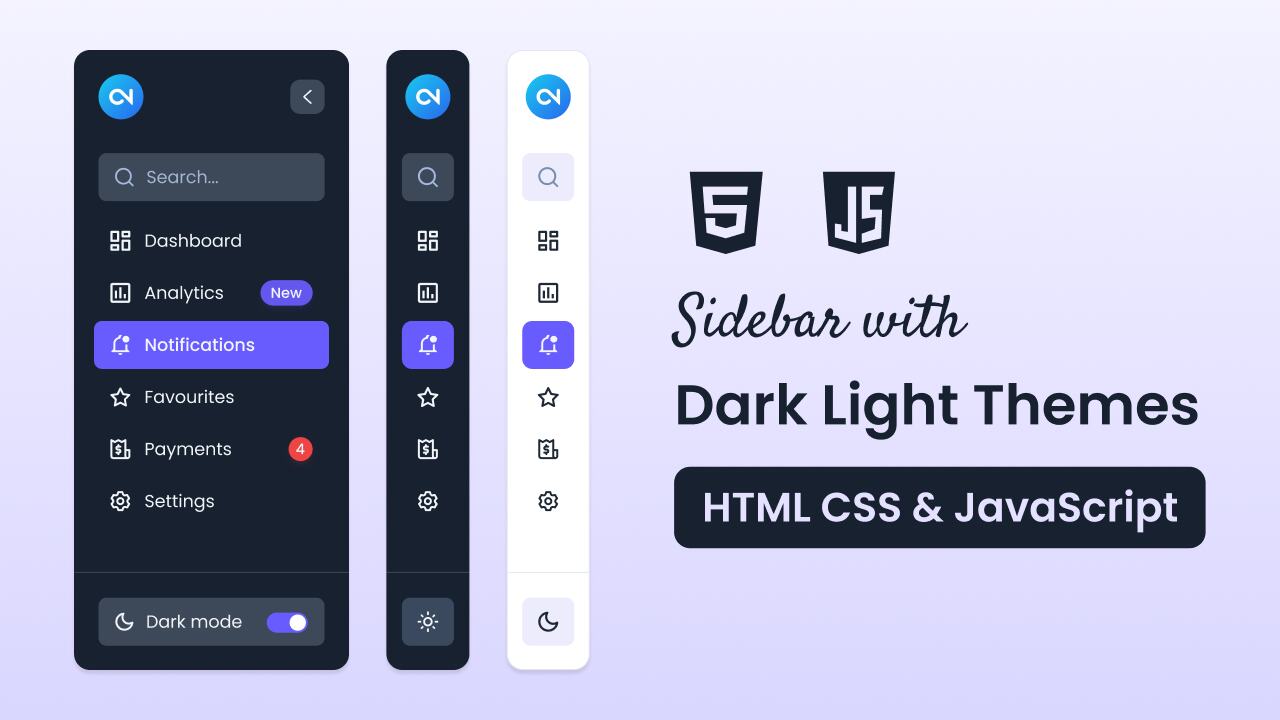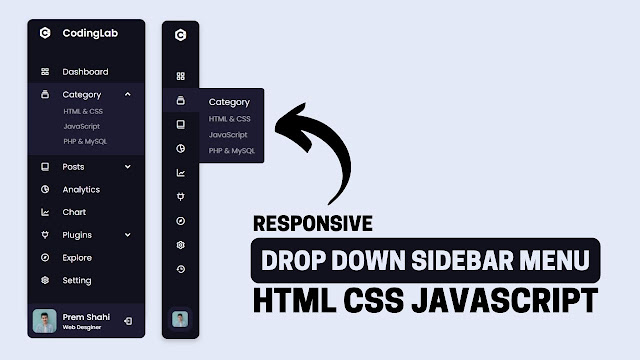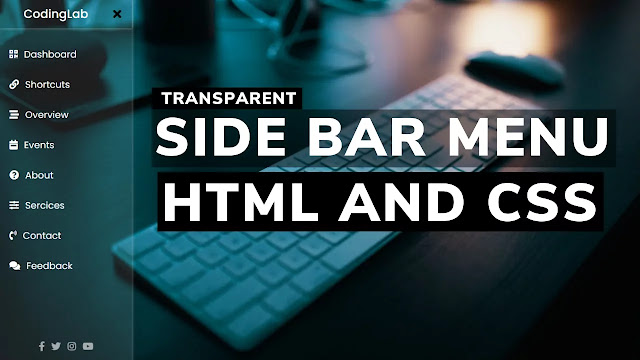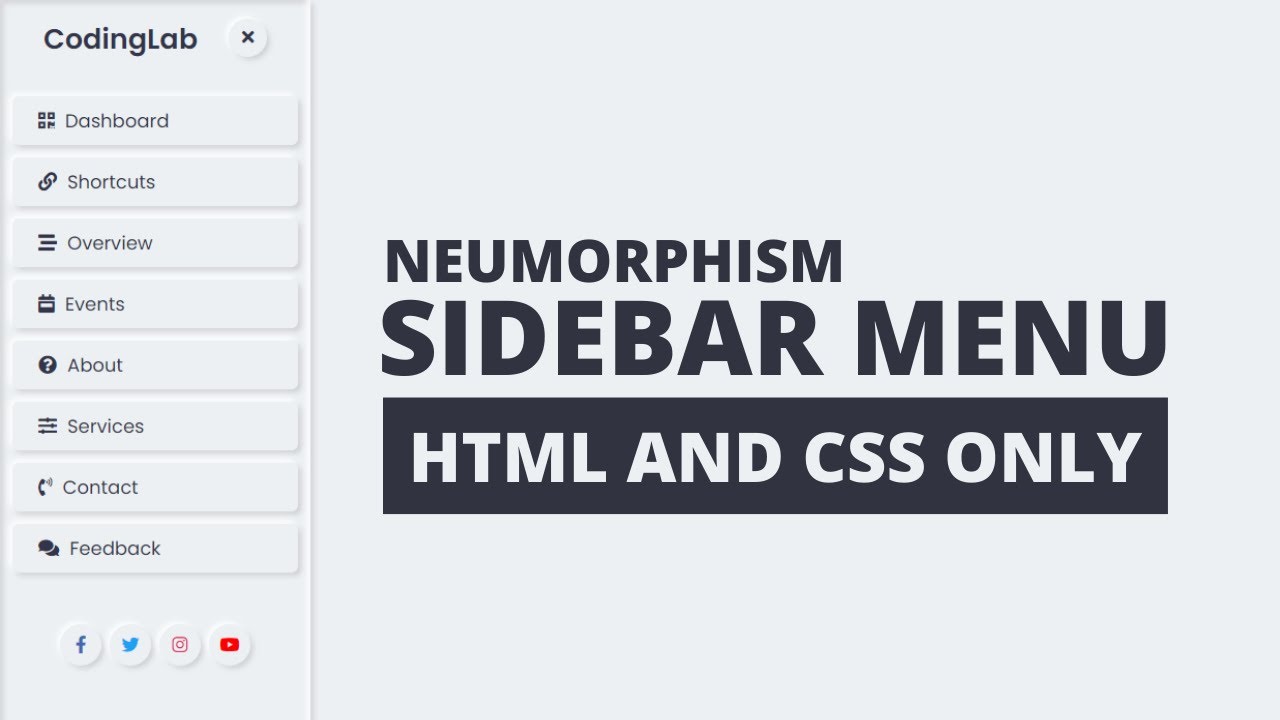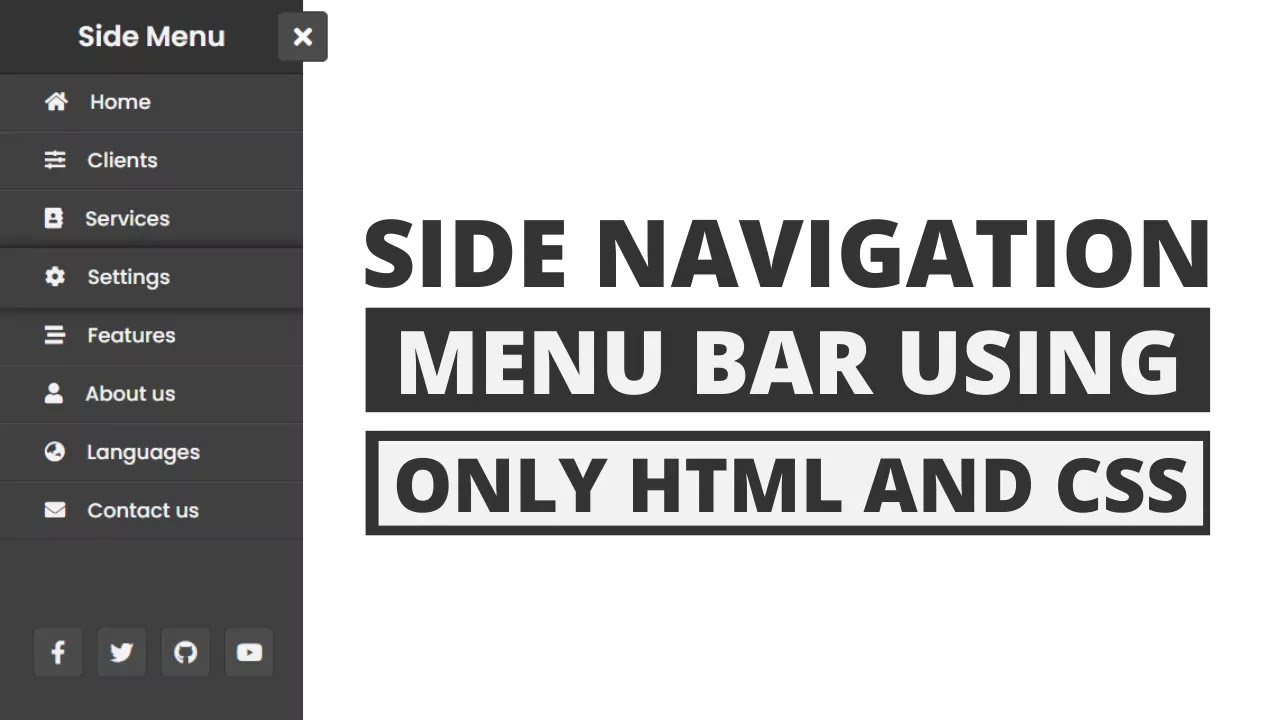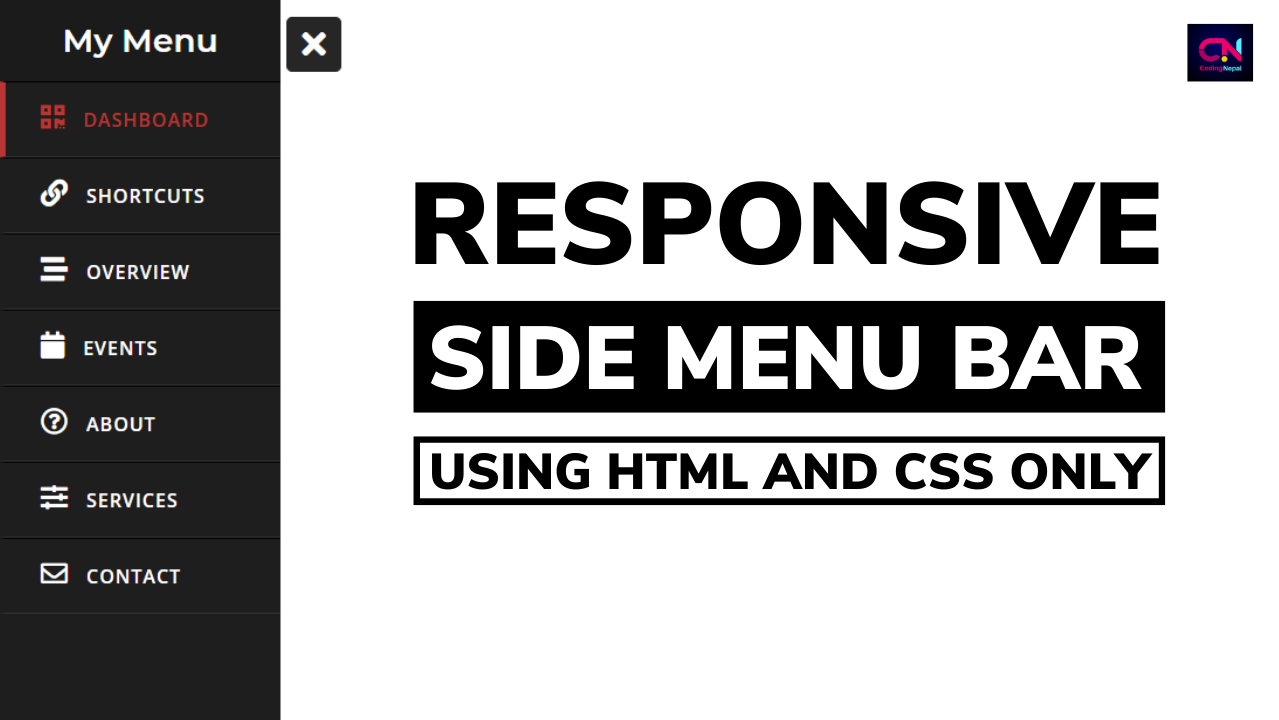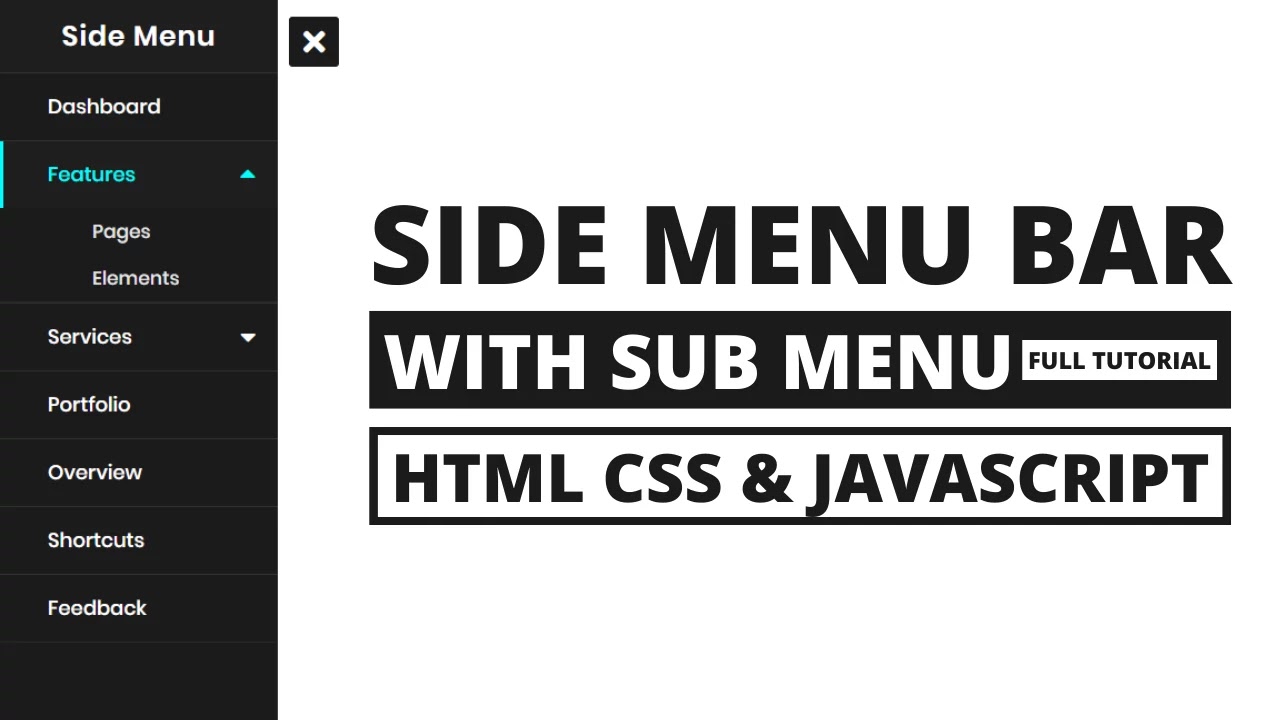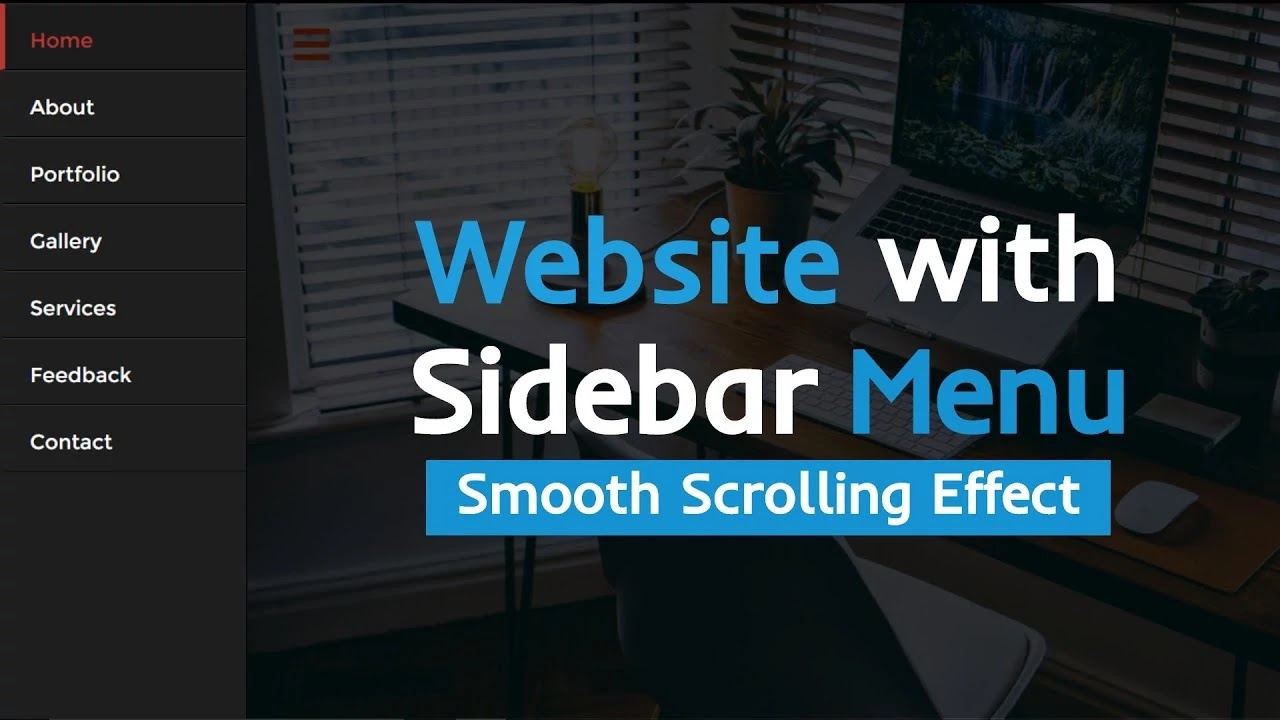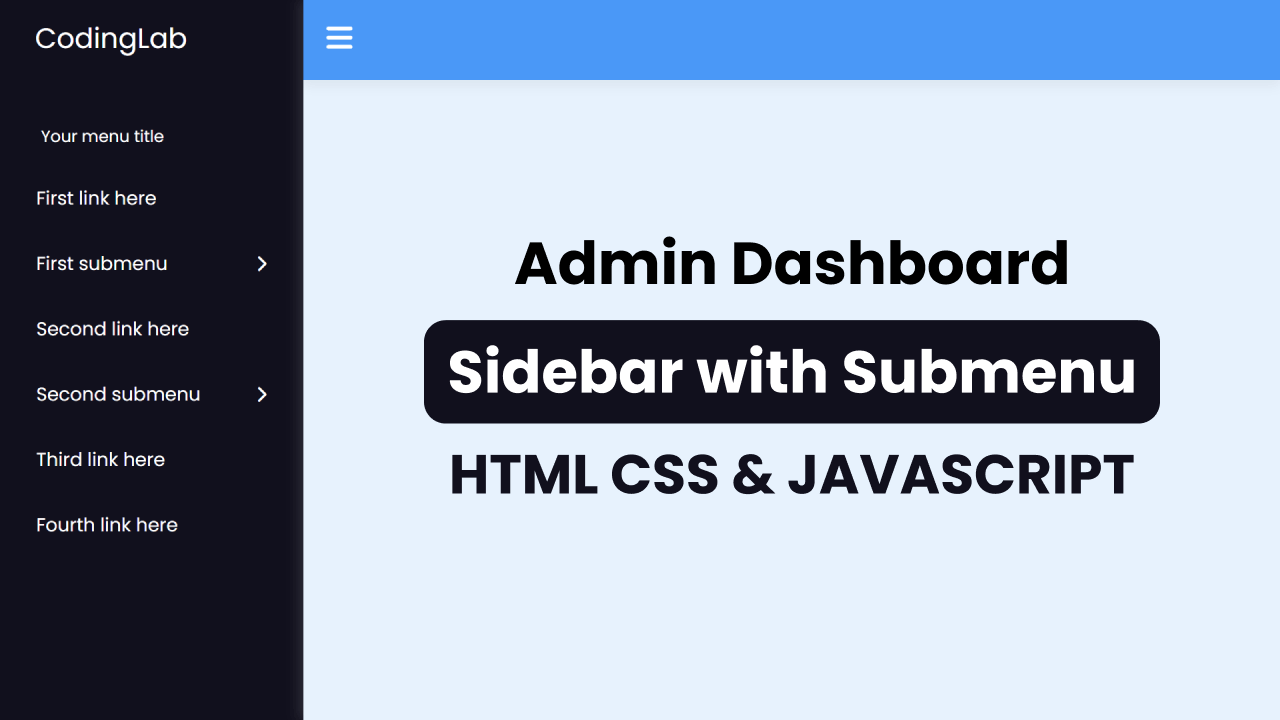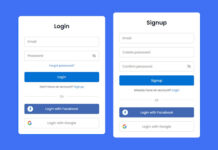One of the most vital elements in any website or web application is the sidebar menu. It plays a big role in making navigation smoother and more intuitive for users. Whether you’re building a personal site or a full-scale app, a sidebar menu can make your interface cleaner and more organized.
The best part? You don’t need any fancy frameworks to create one. With just basic HTML, CSS, and a little JavaScript, you can build powerful, stylish sidebar menus.
In this blog, I’ve put together 17 unique sidebar menu templates. Each one offers different styles and functionalities — some are minimal and beginner-friendly, while others include modern touches like tooltips, dark/light mode, or dropdown submenus.
Let’s dive right into the list.
1. Basic Sidebar Layout (HTML & CSS Only)
This is a clean and minimal sidebar created using just HTML and CSS. It includes basic navigation links and icons, making it ideal for beginners who want to build a simple layout without JavaScript.
The structure is fully responsive and easy to customize. You can tweak the colors, icons, or text to fit your own project’s style without needing advanced coding skills.
2. Modern Collapsible Sidebar (HTML, CSS & JavaScript)
This sidebar adds interactivity with a collapsible feature using JavaScript. It expands on click and collapses into a compact version with tooltips for easy navigation.
It’s responsive on all devices and transitions into a top dropdown menu on smaller screens. A great choice for modern web apps or admin dashboards.
3. Simple Sidebar with Toggle Button
Built with basic HTML, CSS, and JavaScript, this sidebar includes a toggle button to open and close the menu. The layout is clean and user-friendly, with icons and text well-aligned.
This one’s especially suitable for beginners who want to practice adding JavaScript interaction to their layouts. It’s simple but looks polished and functional.
4. Dropdown Sidebar Menu
This sidebar includes dropdown functionality for submenus. You can click on arrows to expand or collapse each section, making it ideal for sites with layered navigation.
Tooltips appear when the sidebar is collapsed, helping users understand each icon’s purpose. It’s practical for dashboards or settings pages with multiple categories.
5. Sidebar with Tooltips & Search Bar
This sidebar features a modern design with a search bar and tooltip-enabled icons. When collapsed, it shows just the icons, maintaining a minimal look while still being functional.
It’s perfect for modern dashboards or apps where screen space is limited. With basic HTML, CSS, and JavaScript, this sidebar is easy to implement and customize.
6. Theme Toggle Sidebar (HTML, CSS & JavaScript)
This sidebar includes a built-in theme switcher that lets users toggle between light and dark modes. It also features a collapsible menu that makes it more interactive and user-friendly.
No external libraries are used, so it’s perfect if you want to learn how to build these features from scratch. It blends modern UI with practical functionality using only vanilla code.
7. Scrollable Dropdown Sidebar
An upgraded version of the previous dropdown sidebar, this one includes scroll functionality. Users can navigate through long lists of items without the sidebar overflowing the page.
It’s ideal for content-rich dashboards or multi-section applications. The dropdowns are animated for a smooth experience and enhance usability without extra complexity.
8. Sidebar with Dark & Light Mode
This sidebar includes both a dark and light mode toggle and a built-in search box. The toggle button is conveniently placed at the bottom of the sidebar for easy access.
It’s great for modern websites where users expect theme-switching. Everything is built with simple HTML, CSS, and JavaScript, so you can easily customize or extend it.
9. Glassmorphism Sidebar Menu
This template uses the trendy Glassmorphism design style, giving the sidebar a frosted-glass effect. Navigation items come with subtle box-shadow effects on hover.
If you’re aiming for a sleek and modern UI, this is a great pick. It’s built with only HTML and CSS, so no JavaScript is needed unless you want to add interactivity later.
10. Neumorphism Sidebar Menu
This sidebar uses Neumorphism styling, giving elements a soft, inset look that feels tactile. The entire menu slides in smoothly with a button click.
It’s a creative design choice if you want your UI to stand out. Everything is done with HTML and CSS, and you can easily adjust the design to suit light or dark themes.
11. Sidebar with Social Media Buttons
This sidebar includes popular social media icons like Facebook, Twitter, GitHub, and YouTube. It slides in and out with a hamburger button and looks clean on all screen sizes.
If your project needs social integration, this is a simple and stylish solution. Built with just HTML and CSS, it’s lightweight and easy to implement.
12. Sidebar with Active Link Highlight
This template highlights the active menu item with color changes and shadows when clicked. It also adjusts nicely on smaller devices.
Perfect for improving user experience by showing which section the user is in. It’s made using only HTML and CSS, so it’s quick to set up.
13. Sidebar with Submenu (HTML, CSS & JavaScript)
This sidebar includes a submenu that appears when you click on certain links. It’s interactive and useful for multi-level navigation.
It’s an ideal choice for applications or dashboards that require categorized links. The layout is intuitive and easy to build with basic front-end knowledge.
14. Website with Sidebar Menu (HTML, CSS, jQuery)
This is more than just a sidebar—it’s a full landing page with a sidebar navigation panel. Each link scrolls or navigates to different page sections.
Built using HTML, CSS, and jQuery, it’s best suited for those comfortable with a bit of JavaScript library use. The design is simple, functional, and mobile-friendly.
15. Sidebar with Sliding Submenu
In this sidebar, clicking a menu item with children slides open a submenu, while the parent link slides out of view. The animation adds a dynamic touch to the UI.
It’s useful for apps or websites that need to present lots of options without overwhelming users. The animations are smooth and coded with HTML, CSS, and JavaScript.
16. Dropdown Hoverable Sidebar Menu
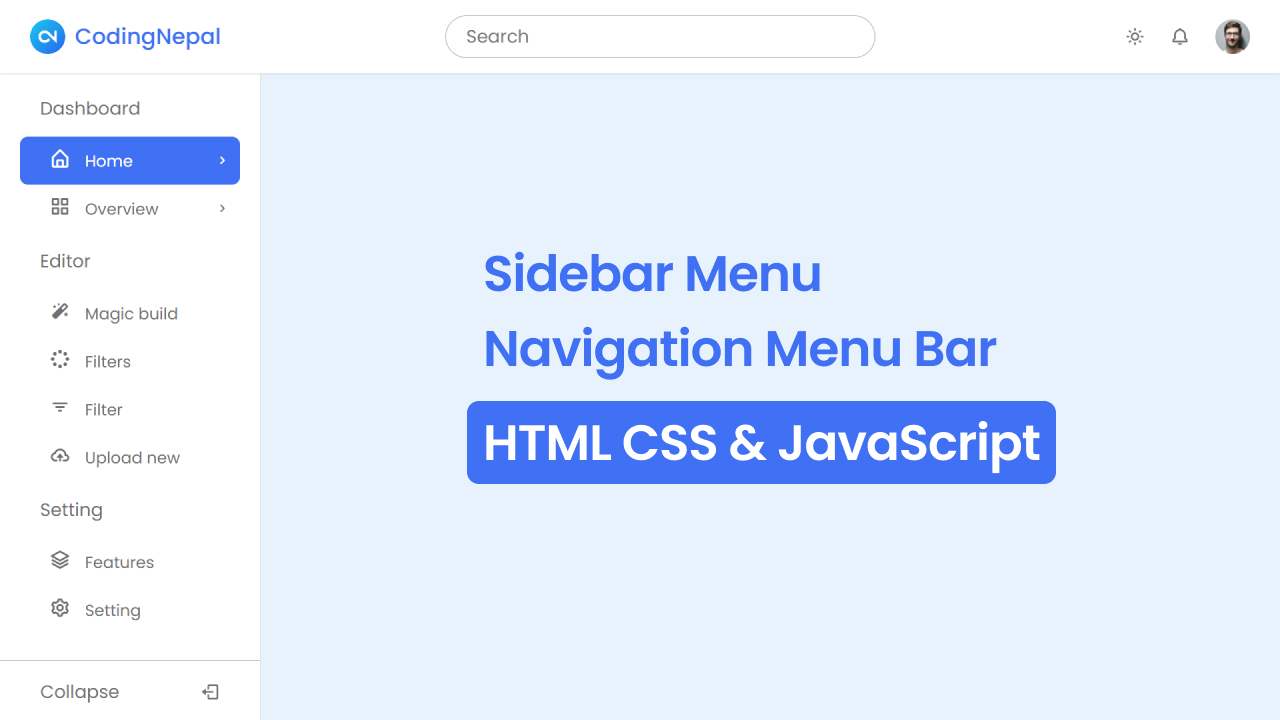
This sidebar supports hover-based interactions. You can expand and collapse menus by hovering over them, making it perfect for desktop interfaces.
It also includes submenus, theme toggle features, and a neat layout built with HTML, CSS, and JavaScript. The hover effect makes it quick to navigate without extra clicks.
17. Hoverable Sidebar Menu (HTML, CSS & JavaScript)
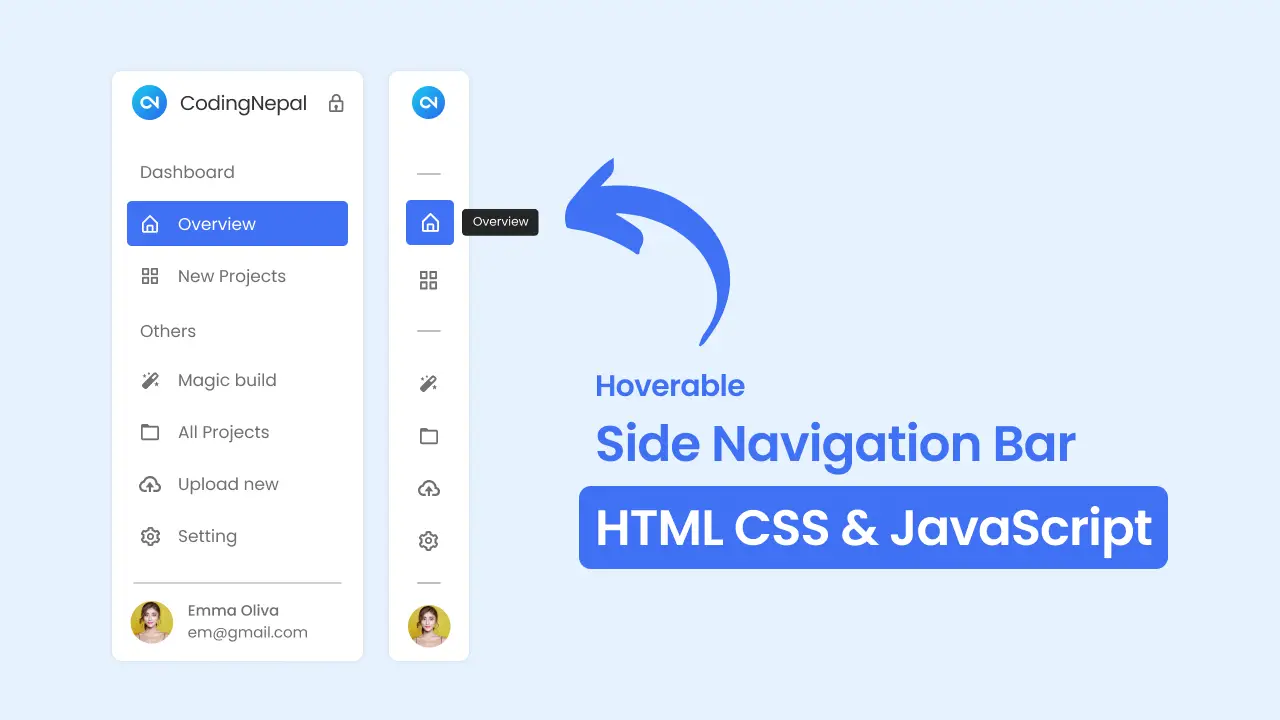
This compact sidebar stays minimized until you hover over it. Once hovered, the full navigation content slides into view, saving space and enhancing UX.
Great for modern layouts or dashboards where screen space is limited. It’s built with vanilla HTML, CSS, and JavaScript, and fully responsive on smaller devices too.
Conclusion
Thanks for checking out this collection of sidebar menu templates. Whether you’re just starting out or looking for UI inspiration, these templates offer a great mix of design and functionality using basic front-end tools.
If you’re new to web development, I also recommend looking at our post on Top 25 Beginner-Friendly Login Form Templates. They’re a great way to sharpen your skills while building real-world components.
Feel free to share this blog with fellow enthusiasts. Thank you for visiting!





